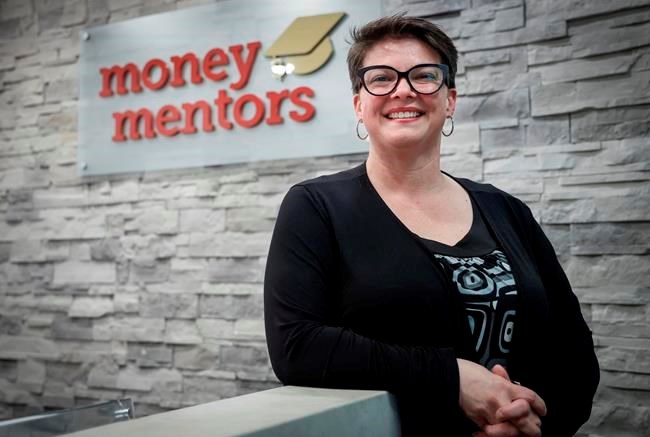From certified financial planners to wealth managers, chartered professional accountants to money coaches, there are no shortage of people out there providing financial advice and services.
It's no wonder so many Canadians seek help with their money in one of two ways — calling someone their friend or neighbour recommended, or walking into their bank and setting up an appointment with whoever is available.
But experts say when it comes to finding a financial adviser, a little research can go a long way. You don't have to use your "dad's guy," or that person at the bank who keeps trying to sell you expensive mutual funds, but you should understand your options before you choose someone to help you with your finances.
"It's challenging, because there are a lot of different designations out there, and there are also some less-than-stellar players as well that want to take your money," said Stacy Yanchuk Oleksy, CEO of Money Mentors,anAlberta-based not-for-profit credit counselling agency.
"Often times when it comes to money, we don't feel like the expert. We think someone else is the expert in the room and we just have to follow along. But I think it's important that people take that responsibility and do their research, and find someone that works for them."
Jessica Moorhouse, host of the "More Money" personal finance podcast, said understanding why you need a financial adviser is the first step in finding the right one.
While anyone at any life stage can benefit from professional financial advice, a young adult looking for monthly budgeting help might do best with a financial counsellor or money coach, while someone in their 30s or 40s struggling with the tax implications of their income property might do better with an accountant.
Meanwhile, an affluent 60-year-old seeking someone to oversee their extensive investment portfolio and help them plan for retirement might prefer to work with a wealth manager.
"Part of the confusion ... is just that range of job titles and designations that exist out there for financial professionals," Moorhouse said.
An online database of professionals, such as the one on the Financial Planning Association of Canada's website, can be a good place to start. There, you can peruse financial advisers in different provinces and view their specializations and credentials.
It's a smart bet to look for someone with the Chartered Financial Planner, or CFP, designation.It's the most widely recognized financial planning designation in Canada and indicates a certain level of education and experience.
However, you'll still want to find someone whose day-to-day expertise aligns with your specific needs.
"You want to ask them what they actually do, because everyone unfortunately is not a generalist — they specialize," Moorhouse said.
The next step is to line up some phone calls or sit-down interviews with prospective candidates. One key question is to ask each person how they get paid.
For example, fee-only advisers typically charge fees at an hourly or flat rate or as a percentage of assets you have with the firm. Fee-based advisers may charge fees on an hourly or annual basis, but they also may earn commissions on the sale of certain products.
Be cautious if a financial services firm is offering you adviser services for free, because that individual may actually be a salesperson.
"You absolutely have the right and should ask in an interview how this person is getting paid," said Dana Hicks, a financial adviser with Edward Jones.
The interview can be a chance to get a sense of someone's approach to investing and whether their vision for your money aligns with yours.
It can also be an opportunity to gauge the level of rapport you have with your prospective adviser. Hicks said you shouldn't be afraid to seek out someone you have common ground and feel comfortable with, whether that means someone from your own ethnic community or someone of your own gender.
"A lot of relationships with financial advisers are built on trust, they’re built on really understanding who your clients are and what their long-term goals are," she said.
"There are a lot of strong, independent women who are my clients. I tend to connect with them in a partnership because they trust women a little bit more."
Ultimately, finding the right financial adviser means doing a little legwork, and not simply going with the first person your bank or brokerage matches you with.
It also means staying on top of your own financial goals, and being confident enough to switch advisers if your current one is no longer helping you meet them.
"There always needs to be that personal education. I mean, I think that's normal for anything," Moorhouse said.
"It's the same with, you know, health. You want to make sure you're doing what you need to do, and don't just rely on, 'Oh, my doctor said it was fine.' Maybe get a second opinion."
This report by The Canadian Press was first published May 9, 2024.
Amanda Stephenson, The Canadian Press




